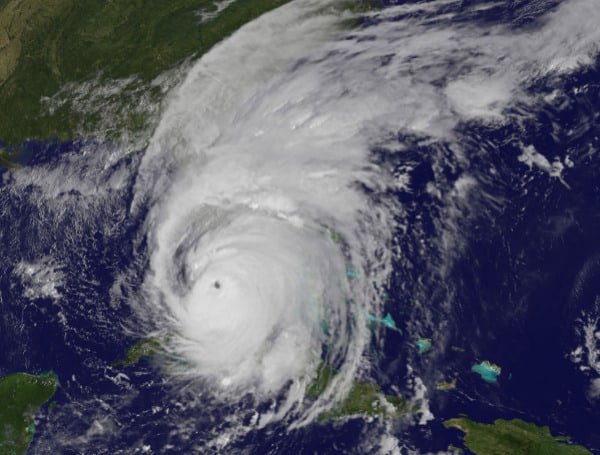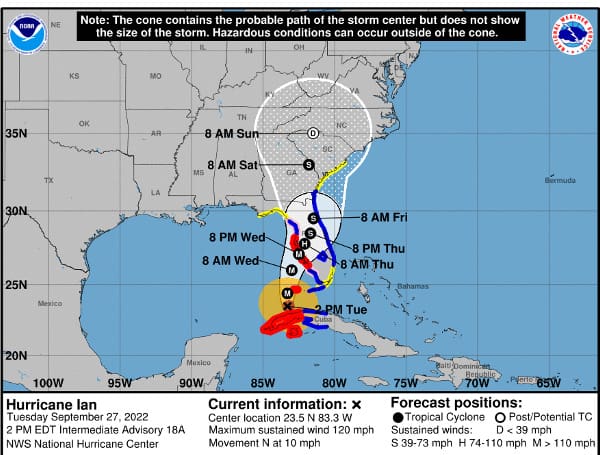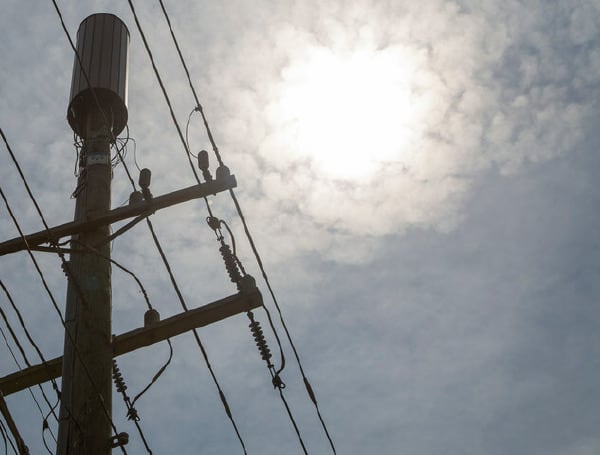As the 2024 hurricane season approaches in Florida, it’s crucial to be well-prepared to ensure your own safety, that of your loved ones, and your property.
Florida is no stranger to the devastating impacts of hurricanes, and taking proactive measures can be a lifesaver.
In this comprehensive guide, we will explore the essential steps to hurricane preparedness, including understanding hurricane facts and terms, creating an emergency kit, securing your home, staying informed, and helping your community recover.
Understanding Hurricane Facts and Terms
Before diving into hurricane preparedness, it’s essential to have a solid understanding of hurricane facts and terms. Tropical cyclones can vary in intensity and size, and being aware of the terminology used by forecasters and news reporters is crucial. Here are some key terms you should know:
- Tropical Depressions: Cyclones with winds of 38 mph.
- Tropical Storms: Cyclones with winds ranging from 39-73 mph.
- Hurricanes: Cyclones with winds of 74 mph or greater.
- Tropical Storm Watch: Tropical storm conditions are possible in the area.
- Hurricane Watch: Hurricane conditions are possible in the area.
- Tropical Storm Warning: Tropical storm conditions are expected in the area.
- Hurricane Warning: Hurricane conditions are expected in the area.
- Eye: The clear center of the storm with calmer conditions.
- Eye Wall: Surrounding the eye, it contains the most severe weather with high wind speeds and heavy precipitation.
- Rain Bands: Bands coming off the cyclone that produce severe weather conditions such as heavy rain, wind, and tornadoes.
- Storm Surge: A deadly result of ocean water swelling due to a landfalling storm, causing coastal and inland flooding.
Understanding these terms will help you interpret forecasts and warnings accurately, enabling you to make informed decisions.
The Importance of Hurricane Forecasts
Predicting the path of a tropical cyclone can be challenging, but advancements in technology and data analysis have significantly improved forecast accuracy. Forecasters use computer models and historical data to predict the storm’s path, intensity, and potential impact. The National Hurricane Center (NHC) is the primary source of up-to-date information on tropical cyclones. Their website, www.nhc.noaa.gov, provides real-time updates, forecasts, weather alerts, and discussions analyzing the data.
It’s important to stay updated with the latest forecasts and heed the advice of local authorities and emergency management officials. Remember that forecast tracks are not always precise, and storms can change course, so it’s crucial to remain vigilant and prepared.
Building an Emergency Kit
Having a well-stocked emergency kit is essential in any storm preparation. Your emergency kit should contain essential supplies that can sustain you and your family for at least three days. Here are some items to include in your kit:
- Water: Store at least one gallon of water per person per day for drinking and sanitation.
- Non-perishable Food: Stock up on ready-to-eat meals, canned goods, and other non-perishable food items.
- First Aid Kit: Include bandages, antiseptics, prescription medications, and any necessary medical supplies.
- Personal Hygiene Items: Pack toiletries, hand sanitizers, toilet paper, and other sanitation items.
- Flashlights and Batteries: Have extra batteries on hand for your flashlights and battery-operated devices.
- Battery-Operated Radio: Stay informed with a battery-operated radio to listen to weather updates and emergency broadcasts.
- Waterproof Container with Important Documents: Keep important documents like identification papers, insurance policies, and medical records in a waterproof container.
- Manual Can Opener: Ensure you have a manual can opener in case of power outages.
- Extra Cash: Keep some extra cash on hand in case ATMs and electronic payment systems are unavailable.
- Special Needs Items: If you have pets or infants, include their supplies such as pet food, baby formula, diapers, and extra medication.
- Books, Games, and Entertainment: Prepare for possible power outages by including books, games, and other forms of entertainment.
Customize your emergency kit based on your family’s specific needs and consider any additional items that might be necessary.
Read: $820M Federal Assistance In 6 Months For Hurricane Idalia Recovery In Florida
Securing Your Home
Securing your home is crucial to minimize potential damage during a hurricane. Here are some steps you can take to protect your property:
- Review Your Insurance Policy: Before hurricane season, review your insurance policy to ensure it provides adequate coverage for your property. Consider making modifications if necessary.
- Cover Windows: Install hurricane shutters or use plywood to cover your windows. This helps protect them from flying debris and prevents shattering.
- Secure Roof: If possible, secure straps or clips to fasten your roof to the structure of your home, reducing the risk of roof damage.
- Trim Trees and Clear Gutters: Trim trees and shrubs near your home to minimize the risk of falling branches. Clear rain gutters to ensure proper drainage.
- Reinforce Garage Doors: Strengthen garage doors to withstand strong winds. Reinforce them with braces or install a garage door bracing system.
- Secure Outdoor Items: Bring in or secure all outdoor furniture, decorations, and any other loose items that could become projectiles in high winds.
- Close and Brace Internal Doors: In case of strong winds, close and secure internal doors to protect yourself and your family from flying debris.
- Evacuation Plan: Determine when you would evacuate your home and establish a plan for evacuation, including a designated meeting point for your family. Consider the needs of any pets or individuals with special requirements.
By taking these precautions, you can significantly reduce the potential damage to your home and ensure the safety of your family.
Read: 2024 Hurricane Season Roof Preparation: Essential Steps To Protect Your Home
Staying Informed
During hurricane season, staying informed about the latest developments and instructions from authorities is paramount. Here are some tips to stay informed:
- Local Updates: National news sources may provide general information, but for accurate and specific updates about your community, rely on local news outlets and radio stations.
- Emergency Management Office: Familiarize yourself with your county’s emergency management office. They can provide crucial information about evacuation routes, sandbag locations, and emergency shelters.
- National Hurricane Center: Visit the National Hurricane Center’s website (www.nhc.noaa.gov) for the most up-to-date information on tropical cyclones, forecasts, weather alerts, discussions, and more.
- Social Media: Follow reputable social media accounts of local authorities, news outlets, and emergency management offices for real-time updates and instructions.
- Mobile Apps: Download the Florida Storms app from your app store. It provides geotargeted live forecasts, evacuation routes, shelter information, and live local radio streams.
- Wireless Emergency Alerts (WEA): Enable WEA notifications on your mobile device to receive emergency alerts directly from local authorities.
By staying informed, you can make informed decisions and take necessary actions to protect yourself and your loved ones.
Special Considerations for Special Needs
Individuals with special needs require additional preparations and considerations during hurricane season. Here are some important points to keep in mind:
- Special Needs Registry: Florida maintains a special needs registry at the local and state levels. Registering with the registry helps emergency management offices identify individuals with specific medical needs that require electricity for an extended period.
- County Resources: Contact your county’s emergency management office to learn about resources available for individuals with special needs. They can provide information on evacuation assistance, accessible shelters, and medical support.
- Medications and Medical Supplies: Ensure you have a sufficient supply of medications and medical supplies to last throughout the hurricane season. Keep them in a safe and easily accessible location.
- Communication Plan: Establish a communication plan with your caregivers, family members, and healthcare providers. Share important contact information and discuss evacuation and shelter plans.
- Emergency Kit: Customize your emergency kit to include any necessary medical supplies, assistive devices, and special dietary requirements.
By addressing these special considerations, you can ensure the safety and well-being of individuals with special needs during hurricane season.
Power Outages: What You Need to Know
Power outages are common during and after hurricanes. Here are some important things to consider:
- Gas: Fill up your vehicle’s gas tank well in advance of an approaching storm. Gas stations may run out of fuel during emergency situations.
- Cash: Have extra cash on hand in case ATMs are inaccessible or electronic payment systems are down.
- Cell Phones: Charge your cell phone and limit its use once the power goes out to conserve battery. Consider purchasing a portable charger or power bank.
- Air Conditioning: During power outages, try to minimize heat entering your home by covering windows from the inside. Avoid running battery-operated fans unless necessary, as they dissipate heat rather than cool the room.
- Water Supply: Fill your bathtub and large containers with water for washing and flushing toilets if water service is interrupted.
- Food Safety: Lower the temperature of your refrigerator and freeze perishable food and drinking water if you expect a prolonged power outage. Follow food safety guidelines to know when to discard perishable food.
- Health and Safety: The Centers for Disease Control and Prevention (CDC) provides a comprehensive guide on staying safe during power outages. Familiarize yourself with their recommendations to minimize health risks.
Being prepared for power outages will help you navigate through the challenges and ensure your well-being during and after a hurricane.
Helping Your Community Recover
After a hurricane, it’s crucial to support your community in its recovery process. Here are some ways you can make a difference:
- Stay Off Roads: After a hurricane, avoid unnecessary travel to allow emergency crews to clear roads and restore essential services. Stay home and keep your family safe.
- Volunteer with Nonprofits: Consider volunteering with reputable nonprofits involved in disaster relief efforts. Organizations like Volunteer Florida, the American Red Cross, and the Salvation Army often require additional support.
- Assist Vulnerable Populations: Reach out to vulnerable populations in your neighborhood, such as seniors or individuals with disabilities. Offer assistance with cleanup, supplies, or other necessary tasks.
- Follow Safety Guidelines: Only engage in cleanup activities when it is safe to do so. Wait until local authorities declare the area clear of hazards before venturing out.
- Support Local Businesses: Patronize local businesses impacted by the hurricane. Your support can help them recover and rebuild their livelihoods.
By coming together as a community, you can help your neighbors recover and rebuild stronger after a hurricane.
Conclusion
As the 2024 hurricane season approaches, it’s vital to prioritize hurricane preparedness. By understanding hurricane facts and terms, building an emergency kit, securing your home, staying informed, and helping your community recover, you can enhance your safety and minimize the impact of hurricanes. Remember to stay vigilant, heed the advice of authorities, and be prepared for any eventuality. By taking these proactive measures, you can navigate hurricane season with confidence and protect what matters most. Stay safe!
Additional Information
Additional information to consider:
- Evacuation Routes: Familiarize yourself with evacuation routes specific to your area and have a plan in place for evacuation if necessary.
- Emergency Contacts: Keep a list of important emergency contacts, including local authorities, utilities, and healthcare providers.
- Pet Preparedness: If you have pets, include their supplies in your emergency kit and make arrangements for their care in case of evacuation.
Remember to adapt and tailor your hurricane preparedness plan to your specific circumstances and location. Stay informed and be proactive in protecting yourself and your loved ones during hurricane season.
Help support the Tampa Free Press by making any small donation by clicking here.
Android Users, Click To Download The Tampa Free Press App And Never Miss A Story. Follow Us On Facebook and Twitter. Sign up for our free newsletter.



